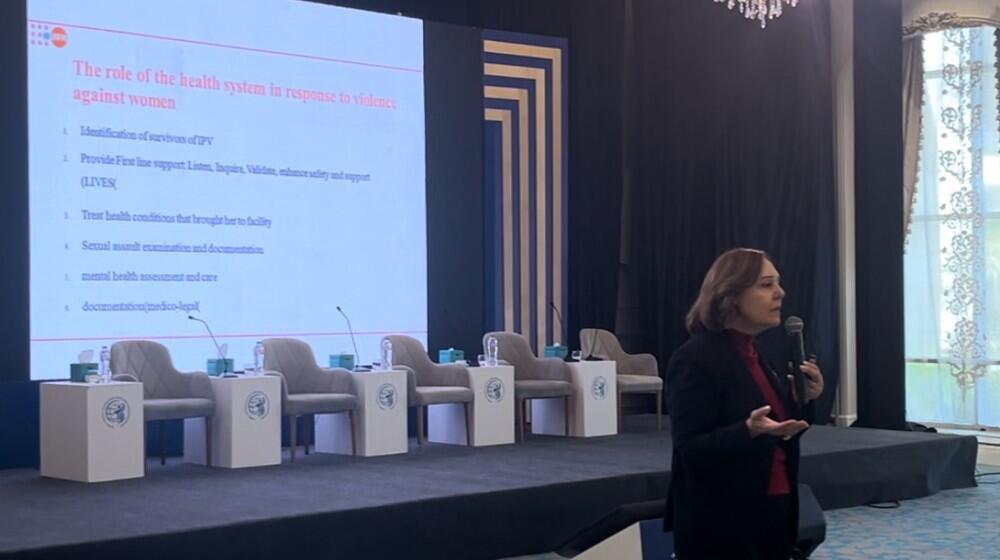UNFPA Egypt showcased the Safe Women Clinics model at a side session at the Global Congress on Population, Health, and Human Development, on October 22, titled “Promoting Access to Quality Health-Care Services for Women and Girls Subjected to Gender-Based Violence in Egypt: Safe Women Clinics Model.”
The event, attended by 66 health practitioners, nurses and medical students, highlighted UNFPA’s ongoing efforts to combat gender-based violence (GBV) against women and girls and improve healthcare services for survivors across Egypt.
Since 2019, UNFPA has partnered with the National Council for Women (NCW) and Ministry of Health and Population to establish 33 Safe Women Clinics across Egypt, offering services in both university hospitals and primary healthcare facilities. These clinics provide medical and psychological care, as well as legal and social support and direct referral for women and girls subjected to violence, using Egypt’s national referral pathway. The clinics have become a strong service delivery channel and an entry point for hundreds of women annually since then.
UNFPA’s overview during the workshop, delivered by UNFPA Gender Specialist Sally Zohney, focused on introducing the most prevalent forms of GBV in Egypt, its impact on the safety and wellbeing of survivors and its direct economic cost as well as presenting rising trends such as Technology-Facilitated GBV globally and the need to ensure attention to survivors’ psychological care.
This workshop aimed to raise awareness of the role of the medical sector in response to cases of violence against women, and the need to provide regular awareness among health service providers on trends and data on prevalence of GBV against women and girls. Key topics presented in the workshop included the critical role of medical service providers in psychological first aid, and the national medical protocol for GBV response.
Dr. Amal Philip, health services expert at NCW, emphasized the effectiveness of the clinic model in providing comprehensive, survivor-centered care, from medical treatment to first-line psychological support. Dr. Dina Shoukry, professor of Forensic Medicine at Cairo University, led session on the clinical care of sexual violence survivors, including medico-legal aspects and the UNFPA-WHO clinical guidelines. Attendees also gained practical knowledge on risk evaluation and safety planning, presented by Dr. Rehab Abdel Rahman, Director of Gynecology at Ain Shams University Hospital and Director of Safe Women Clinic in the University Hospital.
The event highlighted the importance of UNFPA’s collaboration with government partners to ensure a coordinated, multi-sectoral response to GBV, improving access to healthcare services and referrals for survivors. UNFPA’s continued efforts to expand the Safe Women Clinics to more governorates will further strengthen Egypt’s GBV response and ensure that more women and girls receive the care and support they need.


